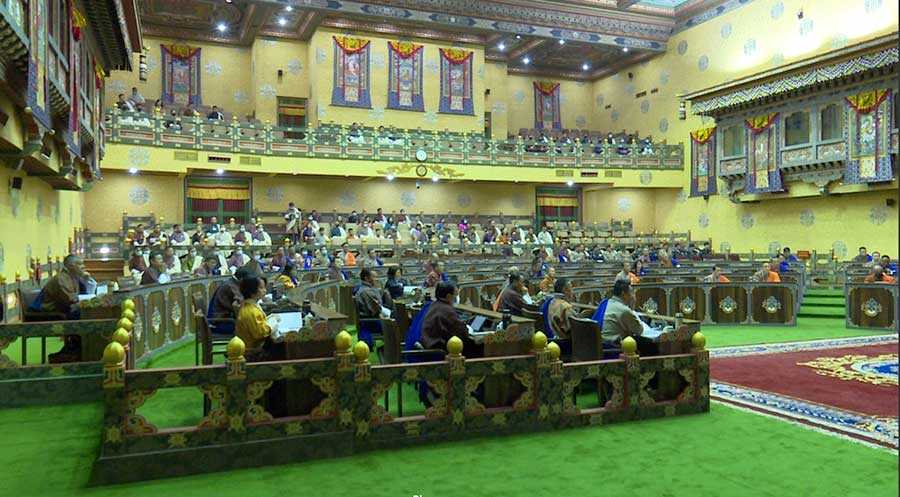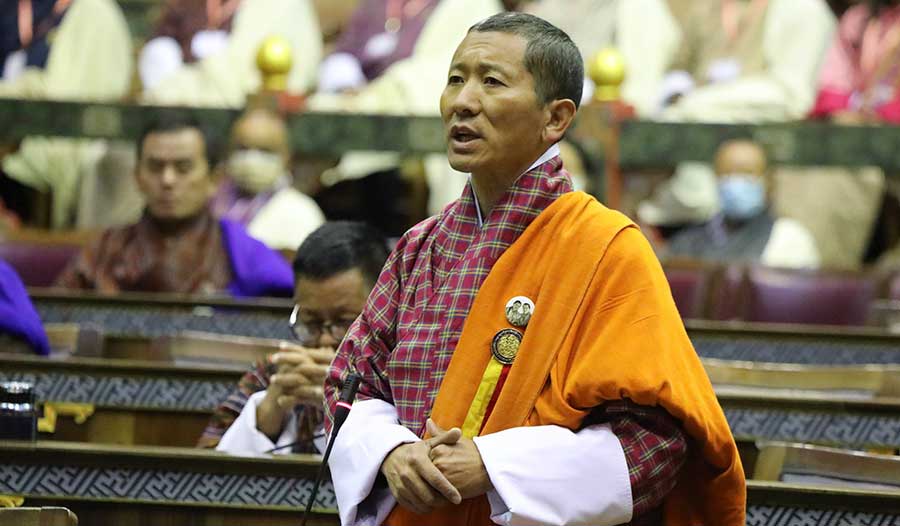
The National Assembly today unanimously adopted the Civil Service Reform Bill 2022. The Bill saw no major changes although extensive deliberations were carried out on the relevancy and responsibility of the proposed nine ministries and departments.
All 45 members present in the house voted in favour of the Bill.
Several members of the parliament yesterday, raised their concerns pertaining to three new ministries- the Ministry of Education and Skills Development, the Ministry of Foreign Affairs and External Trade, and the Ministry of Industry, Commerce and Employment.
“Whether external trade is included there or not, the work will be carried out as now. We have the support even if there are more works in the future. So, I think it’s fine if we just keep it as the Ministry of Foreign Affairs. Also, is it not okay to keep it as Ministry of Trade, Commerce and Industry? asked Kengkhar Weringla Rinzin Jamtsho.
“I think it is more convenient if we keep it as the Ministry of Foreign Affairs. We can mention below that external trade is also included here just like the Ministry of Home Affairs. It is mentioned that the culture and Dzongkha Development Department is under the home ministry,” added Drukjeygang Tseza MP Jurmi Wangchuk.
However, the government clarified why and how the ministries were named.
“All developed countries like Australia and European countries have the external trade and Foreign ministry together. The most important thing is to fix responsibility and accountability. All issues related to external trade have to be dealt with by the foreign ministry so the sole responsibility is on the foreign ministry. This is why external trade was kept with the foreign ministry,” said Dr Tandi Dorji, the Foreign Minister.
“It would be better if we keep it as it is. Today, there is a lot of confusion among people who avail of services. And the name of the ministry is so clear it will not lead to any concussion. Any person who has external trade issues can directly go to the foreign ministry,” said Chhoekhor Tang MP Dawa.
After extensive deliberations, the members agreed to the Bill. A few members also questioned the merging of the Dzongkha Development Commission with the Department of Culture under the Ministry of Home and Cultural Affairs.
“I want to request if there is any possibility of not merging the Dzongkha Development Commission with culture. Earlier it could not perform well and serve the purpose as a small group which is why it was turned into a commission. So, isn’t there any opportunity to keep it as a commission?” asked Chhumig Ura MP Karma Wangchuk.
 According to the Prime Minister, the reason for merging the commission with the Department of Culture is to improve the performance of the commission.
According to the Prime Minister, the reason for merging the commission with the Department of Culture is to improve the performance of the commission.
“If the Dzongkha Development Commission has performed very well and served its purpose, I don’t see any need to merge under the home ministry. With this reformation, one main goal is to keep all the agencies under one or the other ministry except for constitutional offices,” Lyonchhen said.
The Opposition Leader also suggested merging Dzongkha Development Commission with the Education Ministry as any tasks to improve Dzongkha have to be carried out from the schools. But most members accepted the committee’s proposal to merge it with the Department of Culture.
The Bill tabled as an Urgent Bill by the Prime Minister is now forwarded to the National Council for deliberation.
Kinley Dem








